Having left the typical Monday through Friday desk job, many solopreneurs are surprised to find they are working in excess of 40 hours/week to make sure their business is profitable. If that sounds like too many hours for you, perhaps you need to look at how efficiently you are managing your work.
In past blog posts, I’ve stressed the importance of your physical workspace and how it needs to be organized for the greatest level of efficiency. But don’t overlook your mental workspace; your mind also needs to be uncluttered and organized to do your best work!
Here are my best tips:
- Your Physical Workspace
Equip your office for efficiency
- Choose the right desk; consider storage needs as well as ergonomics factors.
- Consider a work table if you need space to spread out paperwork.
- Choose a quality chair – one that’s comfortable and you can sit in for long hours (if needed).
- Consider your computer and accessories; opt for the right size and technical specifications. Also consider wireless accessories to reduce clutter.
- Select appropriate storage; determine your storage needs for your upcoming documents (tickler file), regular-use files, miscellaneous office gear, books, and other office tools.
- Get a shredder, recycle bin, and wastebasket for quick processing of no-longer-needed documents.
Organize your office
- Put things where you use them; decide the most logical place to conduct each work activity (pen and paper near phone, for example).
- Put things you use most frequently closest to you; keep your calendar, current project files, tickler files, etc. within arm’s reach.
- Put things where you’ll think to look for them; place items where your instinct tells you to.
- Put things where they’ll work best; position your computer so that the screen doesn’t reflect glare, arrange office furniture so there’s a natural flow, etc.
Keep up daily
- Clear surfaces of daily clutter; every item should have a home.
- Before you leave the office each day, get things ready for the next day.
2. Your Mental Workspace
Just as important to efficiency as your physical workspace is your mental workspace. You should be clear about your goals, then accomplish them using efficient time management techniques.
Set Clear Goals Using the SMART Acronym.
Goals should be:
- Specific – clearly defined
- Measurable – quantifiable
- Action-oriented – accomplished by doing something
- Relevant – contributing to your objectives
- Time-limited – done by a deadline
Manage Your Time Efficiently Using Action Block Calendaring
- Decide when and how (even whether!) to schedule your work using the ACTION Acronym.
- Assess priority – how important is this task?
- Consider context – what are the needs surrounding this particular task?
- Time commitment – how much of your time is this task worth?
- Identify when – is there a logical time to do this task?
- Other options – does this task have intrinsic worth; does it need doing at all?
- Note in calendar – enter the block of time in your calendar as an appointment with yourself to do this task.
- Move planning your work from your to-do list to your calendar.
- Confirm that all scheduled recurring and one-time events are in your calendar
- Transfer all current to-do items from your to-do list to your calendar
- Find an open time slot in your calendar for each task, adding 25% to your time estimate if you’re not certain how long you should allow
- Enter all new tasks directly into your calendar as Action Blocks
- Open your calendar each day to a ready-made plan! No last-minute scramble.
- Try these additional techniques.
- Work in spurts; consider working in 90-minute blocks of time with short breaks.
- Batch similar tasks; group tasks according to similar actions or similar subject matter.
- Establish time limits; create a sense of urgency for task completion so you don’t take more time than you really need.
- Clean up the leftovers; set aside a few moments at the end of each day to check your calendar for any tasks not done. If you can quickly take care of them, do that. Otherwise, move them to a later date in your calendar so you don’t forget about them!
So how efficient are your workspaces? Would you like a little personal help implementing the above tips? Give me a call or shoot me an email and we’ll figure out ways to make your workspace environments more efficient!








